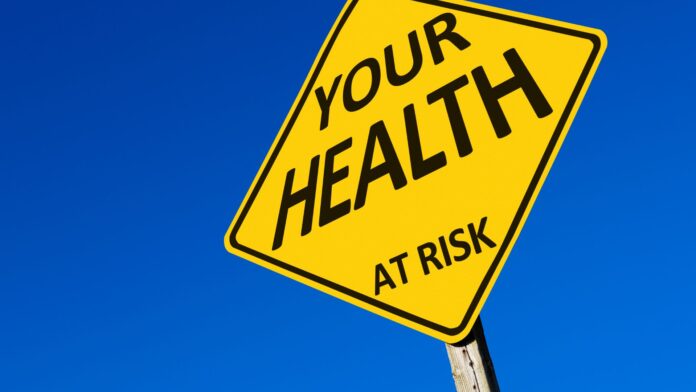Intermittent fasting has received attention over the years as a trendy weight-loss strategy, but the eating plan has been in the spotlight recently for a different reason: its potential harm to heart health.
On March 18, the American Health Association announced study results linking intermittent fasting with an increased risk of dying from cardiovascular disease.1 The findings, which were presented by researchers at an AHA conference and have not been published in a peer-reviewed journal, drew immediate skepticism from medical professionals who pointed out its limitations.
Intermittent fasting involves alternating between set periods of eating and not eating. The study focused specifically on a type of intermittent fasting called time-restricted eating, which limits the number of hours a person can eat during the day. The scientists found that people who followed a 16:8 diet, or ate only within an eight-hour window, had a 91% higher risk of dying from cardiovascular disease compared to people who ate across 12 or 16 hours.
Lead author Victor Wenze Zhong, PhD, a professor at the Shanghai Jiao Tong University School of Medicine in Shanghai, said in the press release that it’s “crucial for patients, particularly those with existing heart conditions or cancer, to be aware of the association between an 8-hour eating window and increased risk of cardiovascular death.”
However, Heba Wassif, MD, MPH, a cardiologist at the Department of Cardiovascular Medicine at the Cleveland Clinic who is unaffiliated with the research, cautioned against placing too much weight on the study’s findings. “Until we have more information, I can only say that long-term effects [of time-restricted eating] remain unclear,” she said.
Here’s what else you need to know about the study, including why experts caution against placing too much weight on the findings.
What Else Did the Study Find?
Researchers reviewed information from over 20,000 U.S. adults enrolled between 2003 and 2018 in the National Health and Nutrition Examination Survey, a study designed to assess the health and nutritional status of adults and children in the United States.
Participants included a roughly equal number of men and women. About three-quarters were White, 11% were Hispanic, 8% were Black, and the rest self-identified as another racial category.
Participants reported details about their food consumption and patterns for the survey on two separate days. Researchers followed participants for an average of eight years.
In addition to finding a general link between eating solely within an eight-hour window and a higher risk of dying from cardiovascular disease, researchers also found that people with existing cardiovascular disease who followed this practice had a 66% increased risk of dying from strokeor heart disease. Participants with cancer also had a higher chance of dying from heart disease.
The study found no association between time-restricted eating and increased life expectancy.
Zhong noted in the press release that the study doesn’t suggest that intermittent fasting increases the risk of cardiovascular death but only shows an association between the two.
Poking Holes in the Study
Paul Leis, DO, an assistant professor of medicine at the Icahn School of Medicine at Mount Sinai, told Health that the findings were “an interesting observation” but cautioned that the study has significant limitations.
Experts noted that the study relied on self-reported information, which can sometimes be inaccurate.
Additionally, Leis said, the study didn’t divulge enough information about the participants’ underlying conditions. “The study didn’t say how many of those patients were diabetic,” he explained. “How many of them had heart disease? Were there other disease factors? What was their physical activity like? What were their BMIs like? I would have liked to see all that information.”
He also said that in addition to seeing when participants ate, he’d want to know what they ate.
“We don’t know what they [participants] were eating during that time,” he said. “During those eight hours, what were they eating? Was it a balanced meal, or were they eating something quickly because they had to get it in that time?”
Stephen Kopecky, MD, a cardiologist at the Department of Cardiovascular Medicine at the Mayo Clinic in Rochester, Minnesota, echoed that sentiment. “Sometimes people who don’t have that much time to eat, eat worse,” he said. “That could be ultra-processed foods, which we know increase mortality from heart disease and increased cancers. That may be part of what contributed to the study’s results.”
What Other Research About Intermittent Fasting Shows
Wassif said she found the study’s results surprising because “previous studies had shown benefit of this type of diet.”
Indeed, some research has suggested that intermittent fasting may improve health by lowering blood pressure, inflammation, and cholesterol.
And according to Leis, there’s evidence to show it can help with weight loss.
“When people fast, you end up using your glycogen stores and then you switch over to ketosis, breaking down fatty acids for energy,” he explained. “There is data to support that due to this reset, you end up losing weight.”
Leis thinks there’s “a role for intermittent fasting to benefit those at high risk for cardiovascular disease,” but recommends that anyone thinking about starting intermittent fasting consult a doctor to figure out which plan—if any—is right for them.
“Maybe the 16:8 method doesn’t work for you but the 12:12 does,” he added. “Patients should discuss with their doctor to see what fits with their profile.”
Francisco J. Rivera Rosario is a science communications editor experienced in developing all types of science content including, scientific journal articles, infographics, medical educational videos, medication FAQ documents, and more.
Fact checked by Nick Blackmere. First seen in Health



